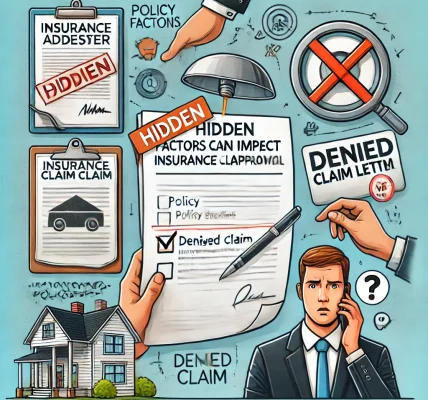Filing an insurance claim can be a frustrating experience, especially when the process drags on longer than expected. Insurance companies sometimes delay claims due to various reasons, but understanding why it happens and how to respond can help speed up the process. This guide explains the common reasons for claim delays and provides actionable steps to ensure a faster approval.
Why Do Insurance Companies Delay Claims?
1. High Volume of Claims
Natural disasters, accidents, or pandemics can lead to a surge in claims. When insurers handle an overwhelming number of claims, processing times slow down.
2. Incomplete or Incorrect Documentation
If claim documents are missing, incomplete, or contain errors, the insurance company may request additional information, causing significant delays.
3. Policy Coverage Disputes
Insurers may take extra time to investigate whether the claim falls under the policy coverage, especially in complex cases.
4. Need for Further Investigation
Some claims require in-depth investigations to verify authenticity. Insurance companies may check for:
- Fraudulent claims
- Pre-existing damages
- Misrepresentations in the claim
5. Adjuster Workload and Availability
Insurance adjusters are responsible for assessing claims, but a backlog of work or availability issues can slow the approval process.
6. Internal Bureaucracy and Deliberate Delays
Sometimes, insurance companies intentionally delay claims to minimize payouts. They may require extensive documentation, conduct repeated investigations, or wait for policyholders to settle for a lower amount.
7. Third-Party Involvement
Claims involving multiple parties (such as medical providers, contractors, or law enforcement) may take longer as insurers wait for external reports.
How to Push for Faster Claim Approval
1. Submit a Complete and Accurate Claim
To avoid unnecessary delays, ensure you provide all necessary documents, including:
- Policy details
- Damage reports
- Repair estimates
- Medical records (if applicable)
- Proof of ownership (for lost or damaged items)
2. Keep Detailed Records
Maintain a record of all interactions with your insurer. This includes emails, phone calls, claim forms, and receipts. Having a paper trail can be crucial in case of disputes.
3. Follow Up Regularly
Don’t assume the insurer is working on your claim continuously. Follow up frequently via phone calls or emails to check the claim status and prompt action.
4. Work with a Public Adjuster
If delays persist, hiring a public adjuster can help. They work on your behalf to assess damage and negotiate fair compensation.
5. Escalate the Matter
If you face unnecessary delays:
- Request to speak with a supervisor or manager.
- Send a formal complaint to the insurance company’s claims department.
- Contact the state insurance commissioner if delays are excessive or unfair.
6. Consider Legal Action if Necessary
If all else fails and the insurer is acting in bad faith, consult an attorney specializing in insurance claims. A legal expert can help you get rightful compensation.
Final Thoughts
Understanding why insurance companies delay claims can help you take proactive steps to avoid or resolve delays. By staying organized, persistent, and informed, you can push for a faster claim approval and get the compensation you deserve.
If you need further guidance, consider consulting a claims expert or legal advisor to navigate complex claim situations efficiently.




